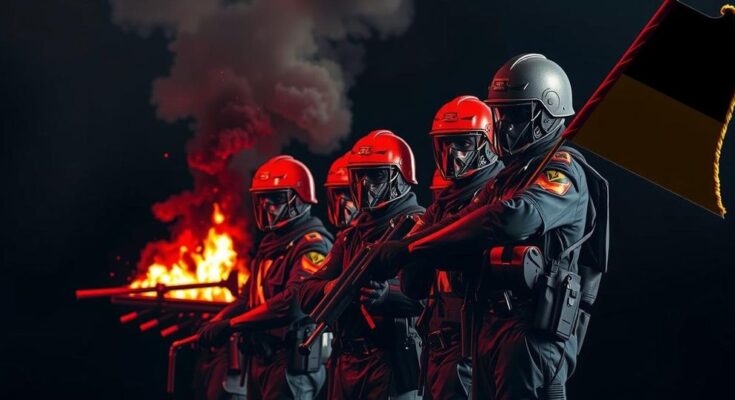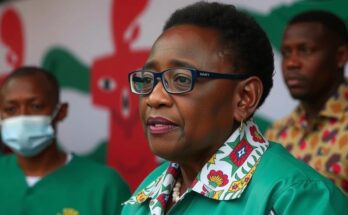The SADC summit addressed post-election violence in Mozambique, where the opposition claims electoral fraud by the ruling FRELIMO party, following the deaths of protesters. Calls for peaceful resolutions and dialogue with political leaders were made, but discontent persists, reflecting deeper issues of governance and democracy in the region.
The Southern African Development Community (SADC) convened an extraordinary summit in Zimbabwe to address the escalating post-election violence in Mozambique and the ongoing conflict in the eastern Democratic Republic of the Congo. Mozambique has faced significant turmoil following its recent elections, where reports suggest that police may have killed at least thirty protesters, igniting accusations from opposition parties of electoral fraud against the ruling FRELIMO government under President Filipe Nyusi.
During the summit, SADC’s executive secretary Elias Magosi emphasized the organization’s commitment to ensuring peace and stability in Mozambique. He expressed condolences for those who lost their lives amid the violence, urging citizens to seek legal redress rather than resort to violent protests. Zimbabwean President Emmerson Mnangagwa, in his closing remarks, focused primarily on the situation in the Democratic Republic of the Congo, overlooking the crisis in Mozambique entirely.
Albino Forquilha of the Mozambican Optimist Party for the Development (PODEMOS) remarked on the insufficient response of SADC to the tumultuous election results, asserting that his party mobilized protests due to disparities between announced electoral results and those recorded at polling stations. He criticized the electoral commission’s transparency and highlighted the necessity for the constitutional court to involve all electoral stakeholders in their validation process. This sentiment reflects a broader opposition narrative, as rival parties contest the legitimacy of FRELIMO’s candidate Daniel Chapo’s victory.
In an effort to quell unrest, President Nyusi has sought dialogues with all four presidential candidates, indicating a readiness to address the grievances stemming from the contentious electoral process and subsequent protests.
The current political landscape in Mozambique is marred by accusations of electoral fraud following the October 9 elections, which have led to protests and violent confrontations with law enforcement. Police involvement in the deaths of protesters has raised significant concerns among civil society organizations about the legitimacy of the electoral results announced by the ruling FRELIMO party. Understanding this context is crucial for comprehending the broader implications of SADC’s discussions and the instability that continues to challenge Mozambique’s governance. The commitment of regional bodies to foster dialogue and resolve conflicts reflects ongoing struggles for democracy and stability in Southern Africa.
In conclusion, the extraordinary summit held by the SADC highlighted the organization’s deep concern regarding the post-election violence and ongoing conflict in the region. Despite calls for dialogue and legal resolution from opposition parties, discontent remains high due to perceived electoral manipulation. Moving forward, it is essential for the Mozambican government to engage with opposition groups to restore confidence in the democratic process and ensure stability. The situation exemplifies the broader challenges of electoral integrity and governance in Southern Africa.
Original Source: www.voanews.com




